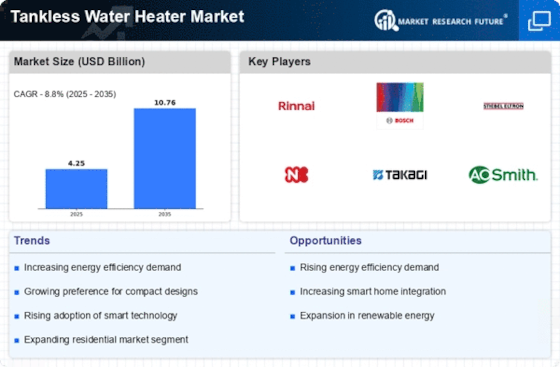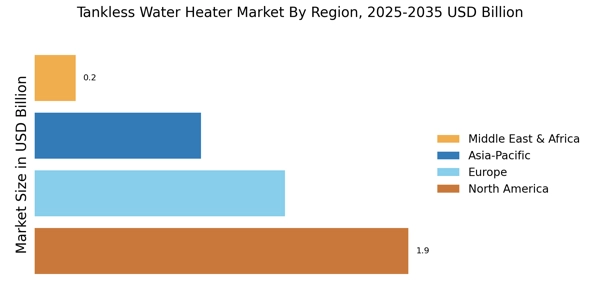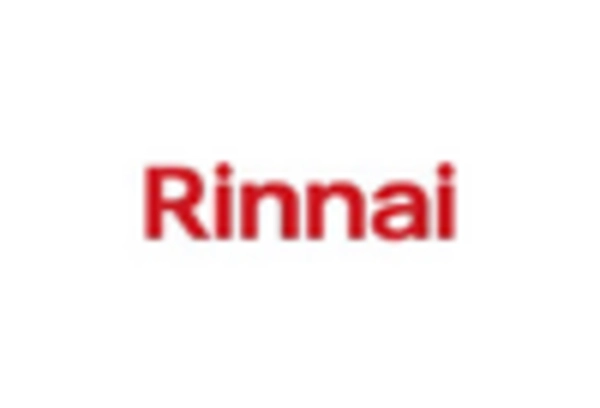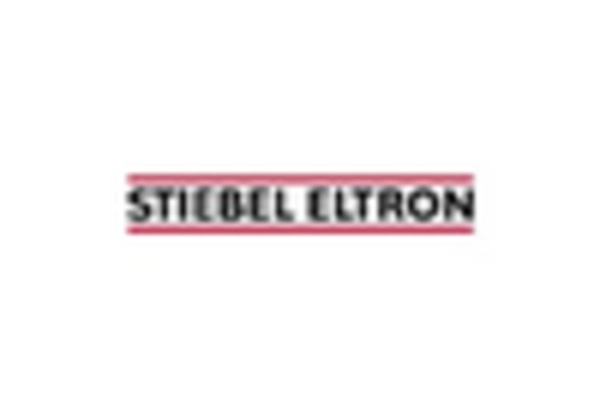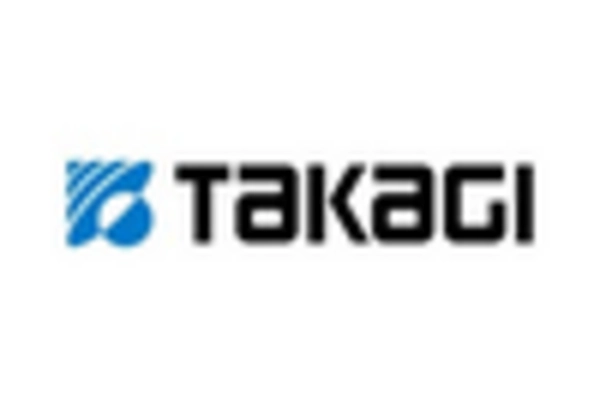Technological Innovations
Technological advancements play a pivotal role in shaping the tankless water heater Market. Innovations such as smart technology integration, which allows users to control their water heating systems remotely, are becoming increasingly prevalent. These advancements not only enhance user convenience but also improve energy management. For instance, some modern tankless water heaters are equipped with sensors that optimize energy use based on real-time demand. The introduction of high-efficiency models, which can achieve energy factors exceeding 0.95, is also noteworthy. Such innovations are likely to attract tech-savvy consumers and environmentally conscious buyers alike, thereby expanding the market. As technology continues to evolve, the Tankless Water Heater Market is expected to witness further growth driven by enhanced product offerings.
Rising Demand for Energy Efficiency
The Tankless Water Heater Market is experiencing a notable surge in demand for energy-efficient solutions. As consumers become increasingly aware of energy consumption and its environmental impact, the preference for tankless water heaters, which provide hot water on demand, is growing. These systems are known to reduce energy costs by up to 30% compared to traditional tank heaters. This shift towards energy efficiency is not merely a trend; it reflects a broader societal movement towards sustainable living. The market is projected to expand as more households and businesses seek to lower their energy bills while minimizing their carbon footprint. Consequently, manufacturers are innovating to enhance the efficiency and performance of tankless systems, further driving growth in the Tankless Water Heater Market.
Government Incentives and Regulations
Government policies and incentives are increasingly influencing the Tankless Water Heater Market. Many governments are implementing regulations aimed at promoting energy efficiency and reducing greenhouse gas emissions. These regulations often include financial incentives for consumers who choose energy-efficient appliances, including tankless water heaters. For example, tax credits and rebates can significantly lower the initial investment cost for consumers, making tankless systems more accessible. Additionally, stricter building codes are encouraging the adoption of energy-efficient technologies in new constructions. As these policies evolve, they are likely to create a favorable environment for the Tankless Water Heater Market, driving both consumer adoption and manufacturer innovation.
Shift Towards Renewable Energy Sources
The Tankless Water Heater Market is witnessing a shift towards renewable energy sources, which is reshaping consumer preferences. As solar and wind energy become more prevalent, consumers are increasingly interested in integrating tankless water heaters with renewable energy systems. This integration not only enhances energy efficiency but also aligns with the growing trend of sustainable living. Market analysis suggests that the adoption of solar-powered tankless water heaters is on the rise, particularly in regions with abundant sunlight. This trend is likely to continue as technology improves and costs decrease, making renewable energy solutions more accessible. The Tankless Water Heater Market stands to benefit from this shift, as consumers seek to reduce their reliance on fossil fuels and lower their overall energy costs.
Increased Awareness of Water Conservation
The Tankless Water Heater Market is benefiting from a growing awareness of water conservation among consumers. As water scarcity becomes a pressing issue in many regions, the demand for solutions that minimize water waste is rising. Tankless water heaters, which heat water only as needed, significantly reduce the amount of water wasted during heating compared to traditional systems. This feature resonates with environmentally conscious consumers who are looking to make sustainable choices. Market data indicates that regions facing severe water shortages are more likely to adopt tankless systems, further propelling market growth. The emphasis on water conservation is likely to remain a key driver in the Tankless Water Heater Market, influencing both consumer preferences and regulatory policies.


